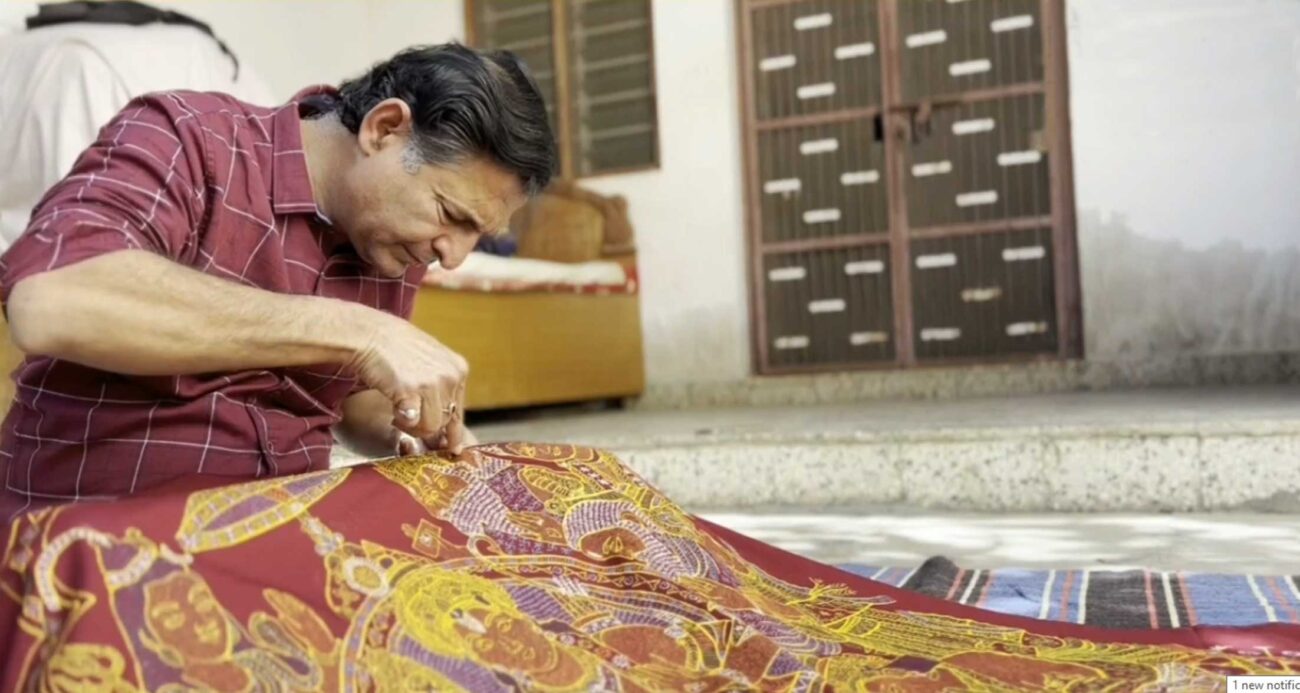Unveiling the Mystique of Rogan Painting: A Vibrant Heritage of Bamiyan to Kutch, Gujarat. There were many misconceptions and stories surrounding the Rogan painting, without any solid basis, before 2008. In 2008, documentary proof was found and everything came out. In 2008, Japanese scientist Yoko Taniguchi and UNESCO discovered an entire town of Buddha followers during research in Bahamian. In this city, all the wonderful paintings were found as if they were in a modern studio. There were paintings on walls, wooden doors and clothes. These paintings were oil paintings. These paintings are believed to be from 6th century and are believed to be the oldest oil paintings. This report uncovered the fact that what was used for oil painting. According to this report, mixing of drying oil, chalk and natural pigment. linseed oil. Walnut oil, Castor oil and poppy seed oil have also been used as substitutes.
It was the time of Silk Root. Handicraft items made by Indian artisans were exported to Europe, China and Japan by silk root. In the state of Gujarat, also this Rogan art was practiced by Hindus and Khatris. This art became almost extinct with the advent of machine printing. At present, About 60 to 70 years ago this Rogan art was practiced all over Gujarat. Chania and Saris were made by this Rogan art, which were worn in marriages of Hindu community. Even today, these dresses are prevalent in many villages. These Chania were used by Bharwad, Rabari, Ahir, Patel and some other communities. Rajasthan also had many Rogan artisans in the past. Rogan art has been alive since the followers of Buddha. At present this art is preserved by one Hindu family and two Khatri families. Unveiling the Mystique of Rogan Painting. Ashish Kansara is teaching Rogan art in workshop in collages
